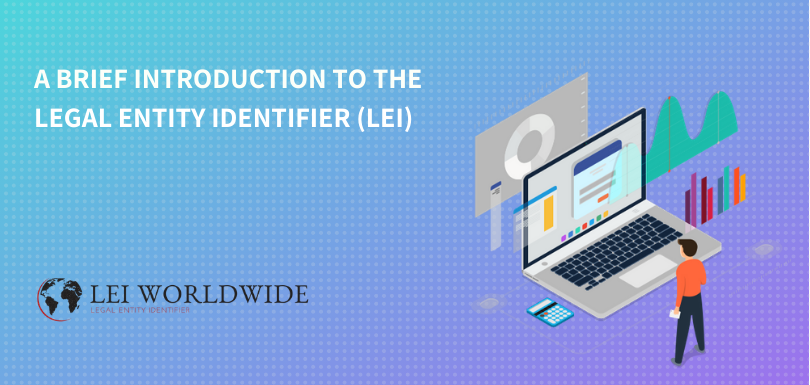|
This post provides a brief educational overview of the LEI, its origins, current usage and future speculations. The LEI is currently being adopted globally and quickly becoming the single most important identifier in the global financial ecosystem. The LEI has far reaching benefits, not only increasing transparency in capital markets, but also in banking, KYC processes, client onboarding and even anti-money laundering! What is a Legal Entity Identifier?A Legal Entity Identifier (LEI), is a code that is unique to a legal entity such as a Limited Company or Fund. This code consists of a combination of 20 letters and numbers. The LEI is an ISO standard, which is now a legal requirement for many companies within the global financial system. The LEI offers accurate data about a company by searching for them on the LEI index. A companies LEI record will contain public data such as their name, address, where they are registered, and whether they are a branch, or owned by another 'parent' company. Why is the LEI so important?Previously it was very difficult to find out about a counterparty if they had no digital presence. This became problematic in the global financial crisis a decade ago. The lack of transparency put financial institutions in a vulnerable position as vast numbers of entities and funds were unidentifiable. Also, this created complications relating to risk assessment and transparency. The G20 launched the LEI system in 2011 in order to ensure this would never happen again. The idea was to create a digital database, of all legal entities which was easily accessible, accurate and up to date. One centralized source of information, that contains vast amounts of attainable, high quality data. Where do LEI numbers come from?After the G20 formed the concept of the LEI, the Financial Stability Board (FSB) appointed a new overseeing body to implement it. This organisation is known as the Global Legal Entity Identifier Foundation (GLEIF). GLEIF were given the role of accrediting and monitoring financial institutions with the ability to issue Legal Entity Identifiers. These institutions, known as Local Operating Units (LOUs) and are the only institutions with the ability to issue LEIs. LOUs may issue LEIs themselves or partner with various Registration Agents who help facilitate mass adoption to the LEI by providing channels through which legal entities can easily obtain an LEI code. This makes the LEI very easy to obtain, and promotes healthy competition between service providers. Who needs an LEI?LEIs are required by any legal entity who is involved with financial transactions or operating within todays global financial ecosystem. There are a number of mandates currently in existence which state "no LEI, no trade" meaning both reporting parties and traders require an LEI. The LEI is mandated by a number of EU directives such as EMIR , MiFIR & MIFID II. The US also have similar requirements such as the Dodd Frank Act, the OFR, the Federal Reserve and the Securities & Exchange commission (SEC). To see a list of laws in your country visit: https://www.gleif.org/en/lei-solutions/regulatory-use-of-the-lei Given that the LEI is becoming more popular, and even more benefits are being realised such as streamlining banking processes and making them more efficient, you will probably end up requiring an LEI in the not so distant future if you don't already. What benefits are there to having an LEI?Your international recognition and trading credibility is increased immediately. Investors, customers and potential stakeholders can locate your essential data in real time. Likewise, you can benefit from the added layer of security that comes from knowing exactly who you are dealing with. How to get an LEIWether you are a financial institution acting on behalf of your clients, or require an LEI for your personal company you can obtain an LEI at www.lei-worldwide.com or by clicking the register button below.
The process is very simple and if you require any advice, please do not hesitate to get in touch with our support team who can talk you through the process, and recommend LEI solutions specific to your needs. In order to contact out team of experienced professionals please click the Contact button below.
0 Comments
Your comment will be posted after it is approved.
Leave a Reply. |
LEI WorldwideThe views expressed in this blog belong to LEI Worldwide. Archives
April 2022
Categories |
Facilitating the global allocation of LEI numbers.
LEI Worldwide facilitate entity identification in the global financial system, capital markets and private sector. We make the process accessible and simple for Legal Entities to obtain Legal Entity Identifier numbers. By doing this we help facilitate the global allocation of LEI numbers. It is our mission to be the one point of contact globally between Legal Entities & LOU’s and ensuring the LEI becomes the Worlds most important identifier.
Services |
Company |
|
UNITED STATES | DUBAI | GERMANY | NETHERLANDS | UNITED KINGDOM | AUSTRALIA | BRAZIL | CANADA | FRANCE | SPAIN | HONG KONG | CHINA | INDIA | ITALY | SWEDEN | BVI | MALTA | UNITED ARAB EMIRATES | MEXICO LUXEMBOURG | SOUTH AFRICA | BELGIUM | SINGAPORE | JAPAN | MAURITIUS | CAYMAN ISLANDS | TURKEY | PORTUGAL | PANAMA | DENMARK | CYPRUS | KENYA | IRELAND | NEW ZEALAND | GREECE | SEYCHELLES


 RSS Feed
RSS Feed









